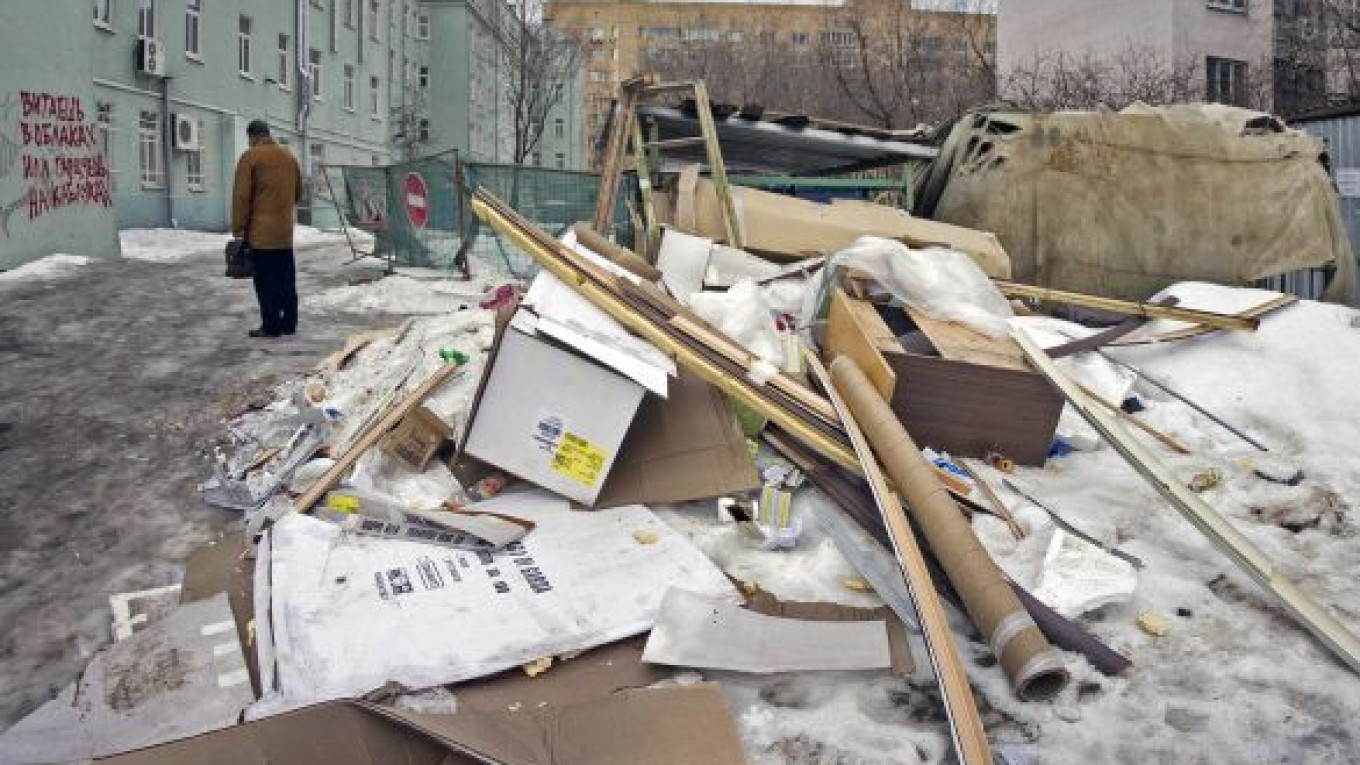More than a quarter of Russians consider the ecological situation in the country to be "close to catastrophic" and 59 percent said that there are severe ecological problems, according to a survey that state-run VTsIOM carried out in November.
The majority of respondents said that the country's ecological problems have grown worse over recent years and only 4 percent said that the situation has improved.
Household waste disposal was highlighted as the key ecological problem with more than three-quarters of respondents also saying that it is necessary to eradicate waste dumps and set up a recycling system.
Transport, industrial waste and deforestation were named the next most significant challenges.
The Natural Resources and Environment Ministry plans to approve a bill about household and industrial waste in the first quarter of 2014, Minister Sergei Donskoy said this week. The bill is expected to help create a recycling industry and make manufacturers pay recycling fees.
Other measures that the ministry is considering include increasing fines for excessive industrial emissions, introducing tariffs for cars that use low quality fuel and a law requiring factories to use more efficient technologies.
But while the majority of the survey respondents said that the federal government is the most important source for change, 34 percent attributed responsibility for the ecological situation to themselves.
People are ready to take some measures to improve the environment, but mostly those that don't require a lot of effort, such as keeping streets clean, obeying fire regulations in forests and parks and using water efficiently, the survey showed. Fewer people were ready to conserve energy in their homes and an even lower number of respondents were willing to use ecologically friendly transportation or fuel.
Over 90 percent of those taking the survey said they are ready to recycle and 81 percent said that they would hand in plastic bottles if they got a little compensation, though people were less willing to take the extra effort to recycle paper or used batteries. No margin of error was given for the survey.
Contact the author at [email protected]
A Message from The Moscow Times:
Dear readers,
We are facing unprecedented challenges. Russia's Prosecutor General's Office has designated The Moscow Times as an "undesirable" organization, criminalizing our work and putting our staff at risk of prosecution. This follows our earlier unjust labeling as a "foreign agent."
These actions are direct attempts to silence independent journalism in Russia. The authorities claim our work "discredits the decisions of the Russian leadership." We see things differently: we strive to provide accurate, unbiased reporting on Russia.
We, the journalists of The Moscow Times, refuse to be silenced. But to continue our work, we need your help.
Your support, no matter how small, makes a world of difference. If you can, please support us monthly starting from just $2. It's quick to set up, and every contribution makes a significant impact.
By supporting The Moscow Times, you're defending open, independent journalism in the face of repression. Thank you for standing with us.
Remind me later.






